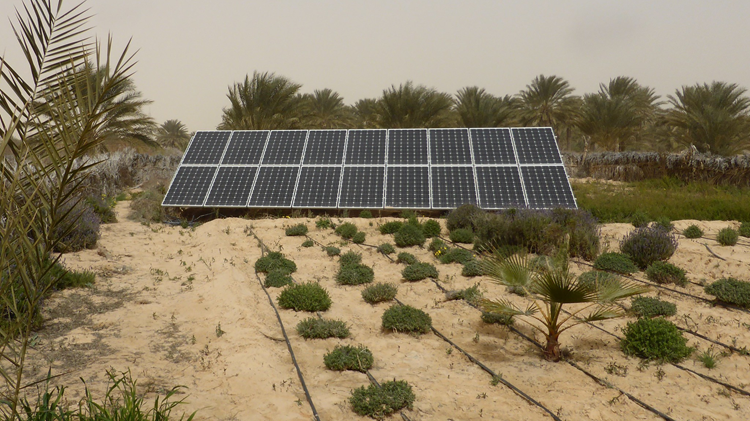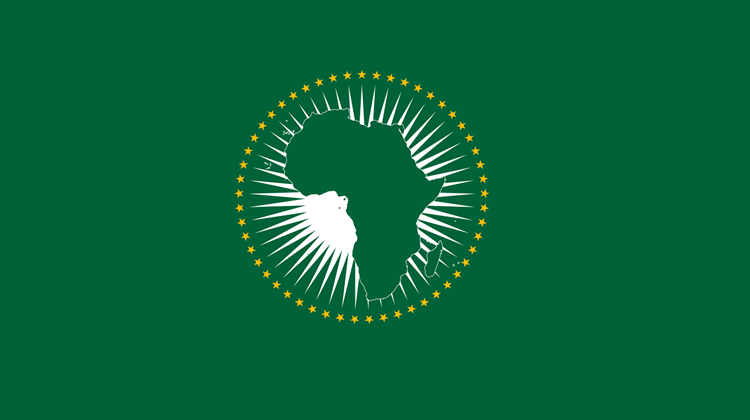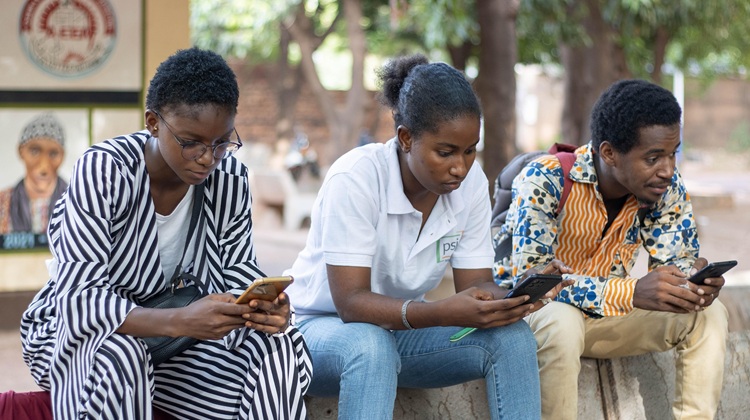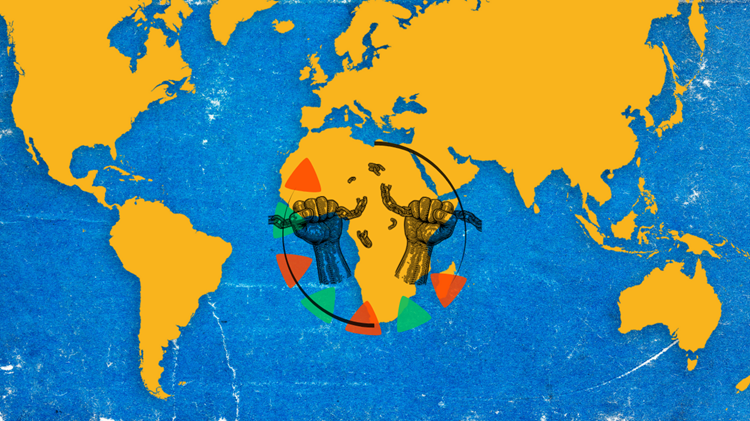Can Africa own its data future?

Weak data systems constrain decision-making, leaving development policies shaped by partial pictures and external estimates.
Africa contributed 3.25% of global scientific publications in 2019. This is a modest gain from 1.5% in 2002, yet far below the continent’s potential when considering its share (approximately 18%) in the world population. The slow pace of progress in research output underscores the substantial ground Africa still has to cover if it is to establish knowledge systems that match its demographic weight and, more so, its development ambitions.
The lack of data in Africa on measuring progress towards the UN’s Sustainable Development Goals (SDGs) highlights the continent's limited data generation capability. African countries had, on average, data available for only 61% of the indicators needed to track progress towards the 17 SDGs (Figure 1). The worst-performing goal was number 13, which focuses on climate action, with average data availability of 15%.
The Africa Growth Initiative’s Foresight Africa 2023 report highlights the need to scale up investment in quality research and development (R&D) and infrastructure. Yet, nearly two decades after African Union member states committed to spending 1% of GDP on R&D expenditure, the continent’s average remains just 0.42%, compared to a global average of 1.7%. Not a single country has met the 1% target. Even South Africa, the region’s largest investor, peaked at only 0.76% in 2017.
Persistent underinvestment has curbed Africa’s contribution to global research and weakened its ability to generate the reliable, context-specific data that evidence-based policymaking and innovation-driven growth demand. The challenge extends beyond academic publishing into government systems where accurate information is equally scarce. Without timely and accessible data anchored in local realities, decisions on infrastructure, natural resources, climate adaptation, industry and education risk being based on partial pictures or external estimates.
In the health sector, for example, many African countries depend on donor-funded disease surveillance rather than national registries. Thus, governments often make choices based on third-party baseline data. Reliance on external funding or collaboration for data collection often risks priorities being set according to international rather than national agendas and standards. Recent USAID cuts further threaten these already fragile systems, as US funds underpin many of the surveys that are the primary source of information on health and demographic outcomes in multiple African countries.
The deficit in data is more than a knowledge gap: it is also a gap in agency, shaping who defines problems, and more critically, who drives the solutions
The deficit in data is more than a knowledge gap. It is also a gap in agency, shaping who defines problems, and more critically, who drives the solutions. The consequences of weak domestic data systems become clear when considering blind spots in key areas that underpin development. Across all economic sectors, information on population dynamics and demographics may be among the most crucial. Without these, governments cannot allocate resources fairly, plan schools and hospitals or operate electoral systems that reflect reality on the ground. For most African countries, this remains the case, where basic data on births and deaths are not captured. In Nigeria, for instance, the last national census was held in 2006. Multiple attempts since then have been postponed due to political and logistical hurdles and the country currently relies on projections estimating its population growth.
Agriculture, the backbone of many African economies and the primary livelihood for millions of Africans, is another sector where statistical systems are lagging. Crop yield estimates often rely on donor surveys or satellite proxies, which can be too coarse in their spatial resolution to be utilised for detailed assessments. This makes it difficult to design effective subsidy programs, monitor food security or anticipate the impact of climate variability. Efforts to harmonise subnational statistics through initiatives such as HarvestStat Africa remain recent and uneven. With the sector mainly driven by female workers, missing data further entrenches the already negative gender equality picture on the continent, leaving women in agriculture facing uncertain futures due to climate change, conflict and a lack of resources.
Africa’s persistent data gaps in the financial sector have entrenched unfair creditworthiness ratings and fueled the costly “Africa premium.” While the African Union’s initiative to establish a continent-based credit rating agency is a promising corrective, it faces an uphill battle given the severe damage already done. To succeed, governments and partners must urgently invest in building transparent, high-quality financial data systems. Strengthening data capacity is essential to enhance the agency’s credibility, lower borrowing costs and shift global perceptions toward Africa’s true economic potential.
According to the United Nations Economic Commission for Africa (UNECA), informal cross-border trade (ICBT) may account for 7 to 16 % of formal intra-African trade flows, and for 30 to 72% of formal trade between neighbouring countries, depending on the corridor. Many official datasets omit such informal trade. This undercount undermines efforts to monitor and manage the African Continental Free Trade Area (AfCFTA), design gender-sensitive trade policies (since many informal traders are women), and shape infrastructure and regulatory frameworks that reflect real flows. The AU’s official institute for statistics, STATAFRIC, released a manual in 2024 to better capture data on ICBT, encouraging member states to harmonise such data collection. The ultimate success of the manual, as well as other similar documents compiled by national and supranational statistics departments, depends on continued implementation backed by adequate funding.
Such sectoral blind spots are not simply technical shortcomings. Together, they demonstrate how the absence of reliable statistics directly translates into fragile planning and constrained policymaking. Nowhere else is this more apparent than in the production and use of gender-disaggregated data. In a study covering 15 African countries, it was determined that only 52% of gender-related indicators were measured in a gender-disaggregated way, with 36% not measured at all. This worsens policy outcomes for women, and, due to the cross-cutting nature of gender equality, also precludes governments from making decisions that can drive overall growth, climate resilience and health outcomes.
Encouraging signs show that Africa is not standing still. Both established and new initiatives are addressing the data gap and building local ownership.For instance, openAFRICA provides one of the largest open-data portals on the continent. At the national level, the Ghana Open Data Initiative has made hundreds of government datasets accessible to the public. Increased commitment and coordination are, however, needed to strengthen continent-wide systems of scale. The persistence of the data gap in many African countries and cross-border frameworks is not accidental, but rather lies in structural barriers.
In some countries, political prioritisation delays support for censuses, surveys and research. Long-term, more indirect initiatives to produce reliable statistics may not be seen as tools to win elections, and therefore, visible projects such as hard infrastructure development are favoured. This leaves statistical offices and research institutes without the sustained support they need to build credibility over time.
Another key barrier is regulatory fragmentation. Rules and frameworks on data access, use or sharing can vary widely among countries. For example, in highly regulated sectors such as healthcare, the collection of personal and patient data can be a serious concern. Enforcement may be weak, making cross-border collaboration difficult and slowing the implementation of continental systems.
Infrastructure challenges are equally limiting, as many institutions lack the servers, storage systems and digital tools to collect, clean and preserve large datasets. Weak data management standards hinder the integration and reuse of data across systems. There is a shortage of skilled statisticians, data scientists and archivists available to manage and analyse information at scale, and many trained professionals leave for opportunities abroad.
Trust and participation in data collection can be low. Communities and individuals often hesitate to share information when they are uncertain about how it will be used or whether it will benefit them, undermining the quality of surveys and registries.
Finally, there is the challenge of institutional continuity and dysfunctionality. National statistical offices and research centres are often overstretched and reliant on short-term project funding. This can lead to frequent staff turnover and a loss of institutional memory.
African governments have to recognise that data is not a technical afterthought but the foundation of effective governance
African governments have to recognise that data is not a technical afterthought but the foundation of effective governance. Closing the data gap and, consequently, the agency gap will take time; yet, pragmatic action must be implemented. Building functional data systems, creating credible datasets and enhancing data processing and analytical skills and capacities are crucial. Even more importantly, increasing data use and uptake in government decision-making circles, especially for gender data, remains a foundational challenge and requires concerted efforts by civil society, the private sector and academia to change perceptions and attitudes towards data-driven decision-making. Ultimately, having African-owned data at hand is crucial if the continent aims to set its own priorities, design solutions that reflect local realities and achieve its development ambitions.
Image: Pexels/Pixabay
Republication of our Africa Tomorrow articles only with permission. Contact us for any enquiries.








